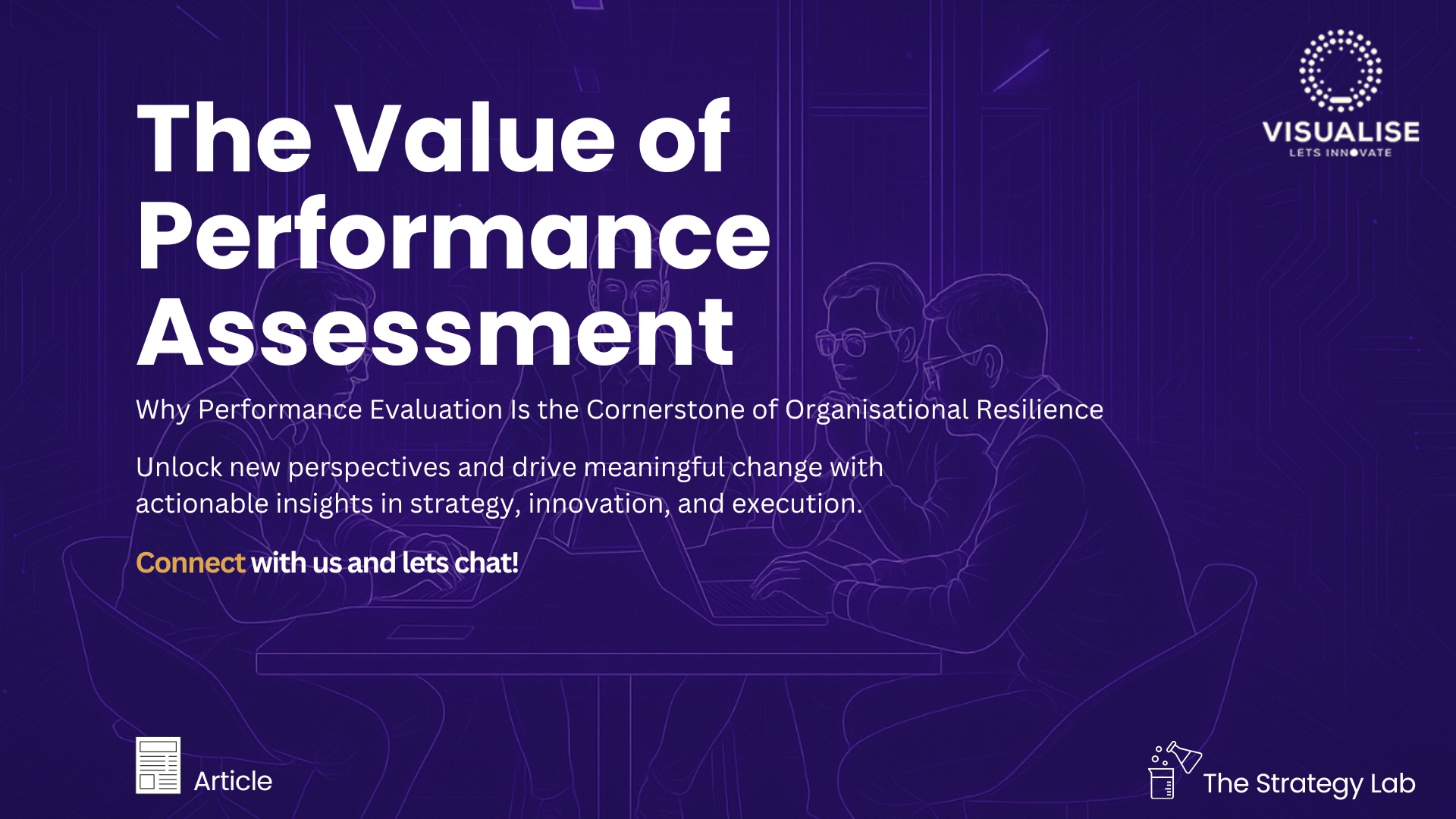Nov09

In an era marked by constant disruption and complexity, organisations must do more than merely adapt—they must excel through deliberate and strategic transformation. Central to this effort is the disciplined evaluation of organisational performance. Far beyond a compliance activity or annual check-in, performance assessment—when applied thoughtfully—becomes a strategic enabler of sustainable improvement.
One of the most powerful tools in this endeavour is the EFQM Model, a globally recognised framework that supports holistic performance evaluation. It guides organisations in analysing their strategic direction, operational execution, and resulting outcomes through a lens that balances short-term agility with long-term sustainability. In today’s volatile landscape, this level of structured assessment is no longer optional—it is a strategic imperative.
The cornerstone of effective performance assessment is sustainability. The EFQM Model encourages organisations to look beyond conventional metrics and evaluate their performance through a multifaceted lens: purpose, strategy, people, stakeholders, and results. This comprehensive view enables organisations to assess how well they are fulfilling their mission and vision, and how effectively they are engaging with internal and external stakeholders.
Critically, this framework allows for both retrospective and forward-looking analysis. As outlined in EFQM Certified Assessor training, the model helps organisations identify not only areas of excellence and underperformance but also their capacity for future success. By integrating predictive indicators and early-warning signals, organisations can proactively respond to emerging risks and opportunities—ensuring that today’s performance does not come at the cost of tomorrow’s sustainability.

Performance assessment under the EFQM Model is not a static, one-time effort. Instead, it supports a dynamic cycle of continuous learning and improvement. Central to this is the RADAR logic—Results, Approach, Deployment, Assessment, and Refinement—a diagnostic tool that enables organisations to assess the maturity and effectiveness of their practices.
RADAR provides structure for evaluating how well approaches are designed to meet strategic objectives, how consistently they are deployed, and whether outcomes are being measured and learned from. This enables organisations to embed feedback loops throughout their processes, ensuring that learning is not incidental but intentional.
By applying RADAR, organisations gain clarity on the connection between strategy and execution, enabling them to adapt rapidly and intelligently to change. The result is not just operational efficiency, but strategic agility.

At its core, performance assessment enables data-driven decision-making. Leaders can no longer rely solely on instinct or fragmented insights. Instead, strategic choices must be grounded in evidence—evidence that links organisational goals to actual performance and stakeholder outcomes.
Through EFQM-based assessments, organisations can critically analyse whether their strategic themes—such as innovation, sustainability, digital transformation, or talent development—are yielding tangible results. This linkage between strategy and outcomes empowers leadership teams to allocate resources effectively, mitigate risk, and pursue meaningful transformation.
When performance insights are integrated into strategic planning, organisations avoid the trap of misalignment—where ambitious plans fail to translate into results due to poor execution or disconnected priorities.
While internal assessments offer value, external evaluations provide critical objectivity. Certified EFQM Assessors bring an outside-in perspective that challenges internal assumptions, validates findings, and applies global best practices.
These assessors offer deep expertise across industries, and their evaluations are grounded in a consistent, credible methodology. More importantly, the process culminates in a detailed feedback report—contextualised to the organisation’s environment, challenges, and ambitions. This report goes beyond generic recommendations, offering actionable insights tailored to the organisation’s unique journey.
Such validation is especially valuable for organisations pursuing external recognition, benchmarking against peers, or seeking to signal their commitment to excellence to investors and stakeholders.
For organisations exploring EFQM assessment or performance transformation, partnering with experts like Visualise Solutions can provide the tools, guidance, and support needed to unlock sustainable value.
Assessing organisational performance is not merely about measuring outcomes—it is about understanding the systemic drivers behind those outcomes and using that knowledge to shape a better future.
When embedded within a rigorous framework like the EFQM Model, performance assessment becomes a powerful mechanism for alignment, innovation, and transformation. It connects strategy with execution, data with decision-making, and people with purpose. Above all, it instils a culture of continuous learning that drives sustainable improvement.
In a world where the pace of change is relentless, performance assessment is more than a management tool—it is a leadership discipline, essential for long-term resilience and relevance.
By Andrew Constable MBA, XPP, BSMP
Keywords: Business Strategy, Innovation, Leadership
 The Orchestra Needs a Conductor: Why Multi-Model Agents Require H2E Governance
The Orchestra Needs a Conductor: Why Multi-Model Agents Require H2E Governance The Role of Memory in Modern-day Business
The Role of Memory in Modern-day Business The Architectures of Permanence: A Comparative Analysis of the "Big Three" AI Strategies (2026)
The Architectures of Permanence: A Comparative Analysis of the "Big Three" AI Strategies (2026) Friday’s Change Reflection Quote - Leadership of Change - Change Leaders Enable Generational Advancement
Friday’s Change Reflection Quote - Leadership of Change - Change Leaders Enable Generational Advancement The Corix Partners Friday Reading List - February 27, 2026
The Corix Partners Friday Reading List - February 27, 2026